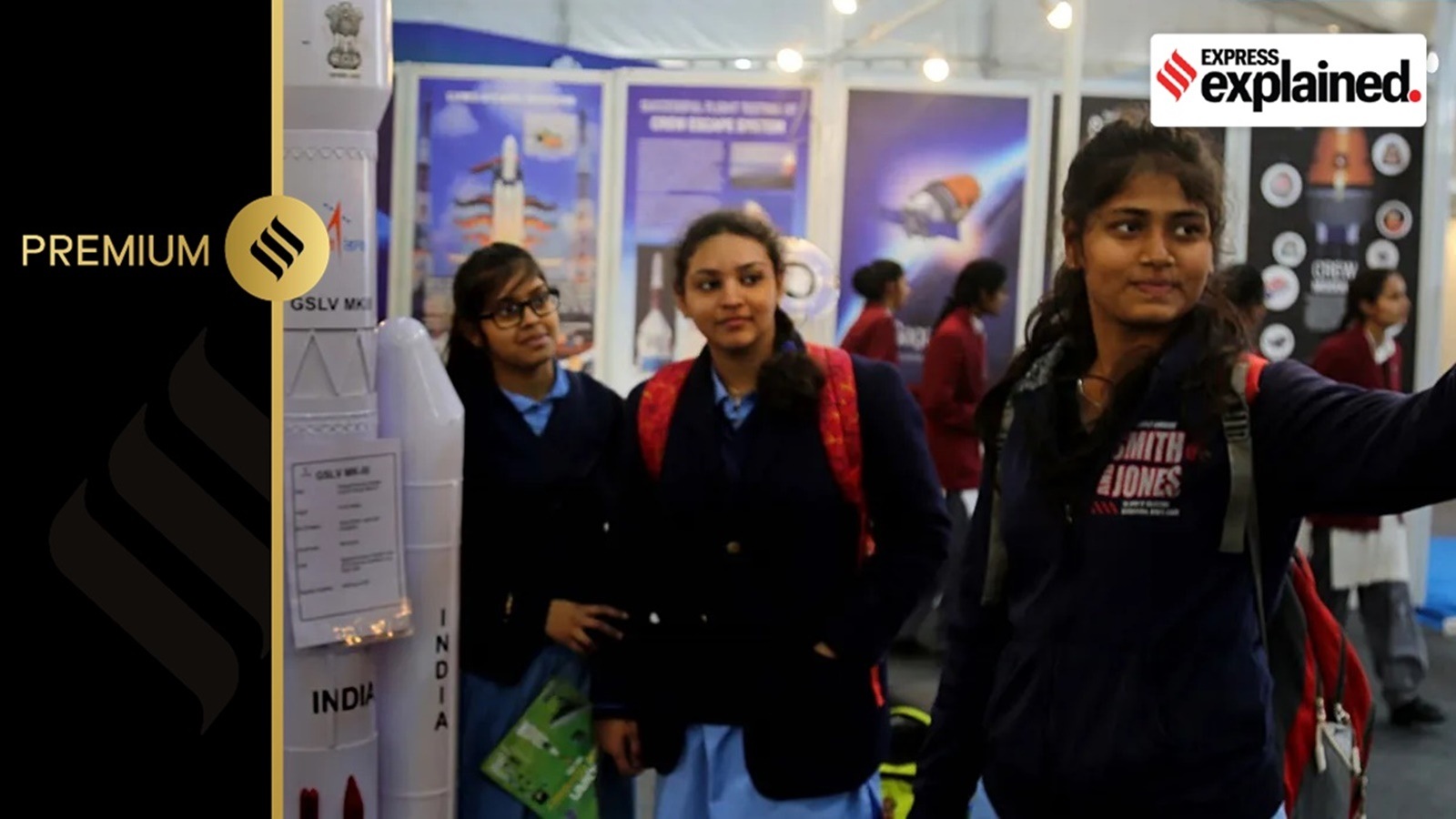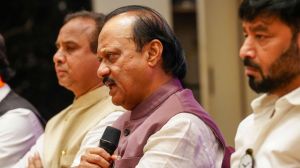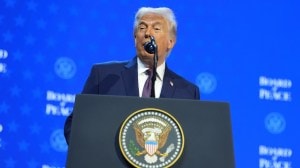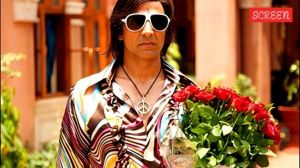The Indian Science Congress, the largest gathering of scientists and students of science in the country and a permanent annual fixture in the calendar of the participant group for more than a century, has been postponed.
The five-day event will not begin on its customary date, January 3. There is no firm word on when — and whether — the congress will meet this year.
The postponement is unprecedented. With the exception of the two years following the outbreak of the Covid-19 pandemic— 2021 and 2022 — the Indian Science Congress has been held every year since 1914. The 108th edition of the Congress was held in Nagpur from January 3-7, 2023.
The congress is inaugurated by the Prime Minister. It is a permanent fixture on the PM’s calendar, and is usually his/her first public engagement of the new year.
Prime Minister Narendra Modi had addressed the Science Congress by video link last year, and had called for harnessing scientific knowledge for societal needs and to make India self-reliant. He had inaugurated all previous congresses during his tenure in person.
The Science Congress is a one-of-its-kind event, which brings together scientists and researchers from not just the country’s premier institutions and laboratories, but also teachers of science from colleges and universities, and offers them a platform to interact with students and the general public on matters relating to science.
The congress has had a glorious past, with the who’s who of Indian science participating and serving as the event’s organisers.
Story continues below this ad
So why then has the Science Congress been postponed this year?
The crisis is the fallout of an unresolved disagreement between the Indian Science Congress Association (ISCA), a registered society that organises the event, and the Department of Science and Technology (DST) in the Union Ministry of Science and Technology, the main funder of the congress.
In September 2023, the DST pulled funding support to the congress, alleging “financial irregularities”. The ISCA denied the accusation, and challenged the DST’s directive that government funds should not be spent on anything related to the Science Congress, in court. This only deepened the rift. The lawsuit remains pending.
The DST’s contribution (which was raised to Rs 5 crore in 2023 from Rs 3 crore earlier) pays for most of the event’s expenses. The ISCA also receives some funding from a few other government bodies, and raises some more from its members and by renting out space for exhibitions etc. during the event.
Story continues below this ad
The ISCA had decided to move this year’s congress from the original venue, Lucknow University, to the private Lovely Professional University (LPU) in Jalandhar in the hope of receiving some funding. While LPU had also hosted the 106th Science Congress in 2019, the DST was said to be unhappy with the ISCA’s choice for this year. The ISCA, however, argued that its executive committee does not need the DST’s clearance for the venue, and that a DST representative was in any case present when LPU was chosen.
Amid this tussle, LPU last month withdrew its offer to host the event.
Was this crisis for the Science Congress not foreseen by the organisers?
The Science Congress has in fact, been in steady decline over the past several years. The glory days of the gathering are clearly over, and it has of late been in the news more for the controversies that it has generated than for any serious scientific discussion or useful outcomes.
Story continues below this ad
Random speakers have used the platform to make outlandish claims and promote pseudoscience, which have drawn ridicule. The papers that are presented or the talks that are delivered, hardly reflect the latest advancements in science.
Most of India’s credible scientists now avoid the event. Leading scientific institutions and laboratories have only a token presence, if at all. Most attendees are from colleges and universities with limited scientific credentials.
Several top scientists have, in fact, said that the event should be discontinued, or the government should withdraw support to it. There has been talk of reforms for the past couple of decades, but nothing much has changed.
But what exactly is the government’s dilemma here?
The ISCA is an independent body, and the government has no role to play in the selection of the panelists or speakers, the papers to be presented, or the subjects to be discussed at the Science Congress.
Story continues below this ad
But at the same time, the ISCA runs with DST support. Besides the annual grant for the Science Congress, the government also pays the salaries of the ISCA’s permanent staff. And because the congress is inaugurated by the PM and attended by other ministers and senior officials, it is perceived as being closely associated with the government. As such, every time the event lands in controversy the government is blamed.
Also, while the event is presented as a showcase scientific forum in India, its proceedings often convey an unflattering and frequently embarrassing picture of Indian science internationally.
And what has the government done about this situation?
There has in fact been a strong sentiment within the government in favour of reviewing its association with the Science Congress. This feeling predates the current government — back in 2008, then Science Minister Kapil Sibal was said to be so upset with the goings-on at the congress that he had explored the possibility of discontinuing government support until some reforms were introduced.
However, governments have been reluctant to actually go ahead on this path. They have been wary of opening themselves up to accusations of being “anti-science”. They have also been mindful that the event attracts a large number of students from across the country, and this is their only opportunity to interact with some well-known scientists, and be exposed to new developments in science.
Story continues below this ad
The government has been scaling down its involvement in the Science Congress. The PM no longer presents the awards at the inaugural plenary — some past awardees were subsequently found to have dubious credentials — and the number of people who share the stage with the PM at the inauguration has been significantly reduced.
Is this year’s postponement a signal that the Science Congress could be approaching the end of the road?
ISCA general secretary Ranjit Kumar Verma has said that while the postponement is unfortunate, it does not mean the end of Science Congress. “We will hopefully be able to organise the Science Congress before March 31 and we are hopeful that the Prime Minister will attend the event,” he said.
A government official told The Indian Express that financial support to the Science Congress could resume. “There was a disagreement over the funding for this year’s event, but this does not mean that there would be no support for all future events. Discussions for collaboration will continue for the Science Congress scheduled for 2025,” he said.
Story continues below this ad
Scientists have said that one way to reform the Science Congress could be to develop an alternative forum where top Indian and global scientists could be invited to talk about the latest developments in the scientific world and their impacts on our lives.
Such events are organised in many countries, and are extremely popular. They also serve as platforms to get younger citizens and the general public excited about science, and help in the cultivation of scientific temper, which is one of the main purposes of the Science Congress as well.
Such an alternative forum could also help to make Indian science more competitive, and could lead to an increase in collaborative research with leading scientific groups and institutions.
This is a revised and updated version of an earlier explainer that was first published on January 4, 2023.








































